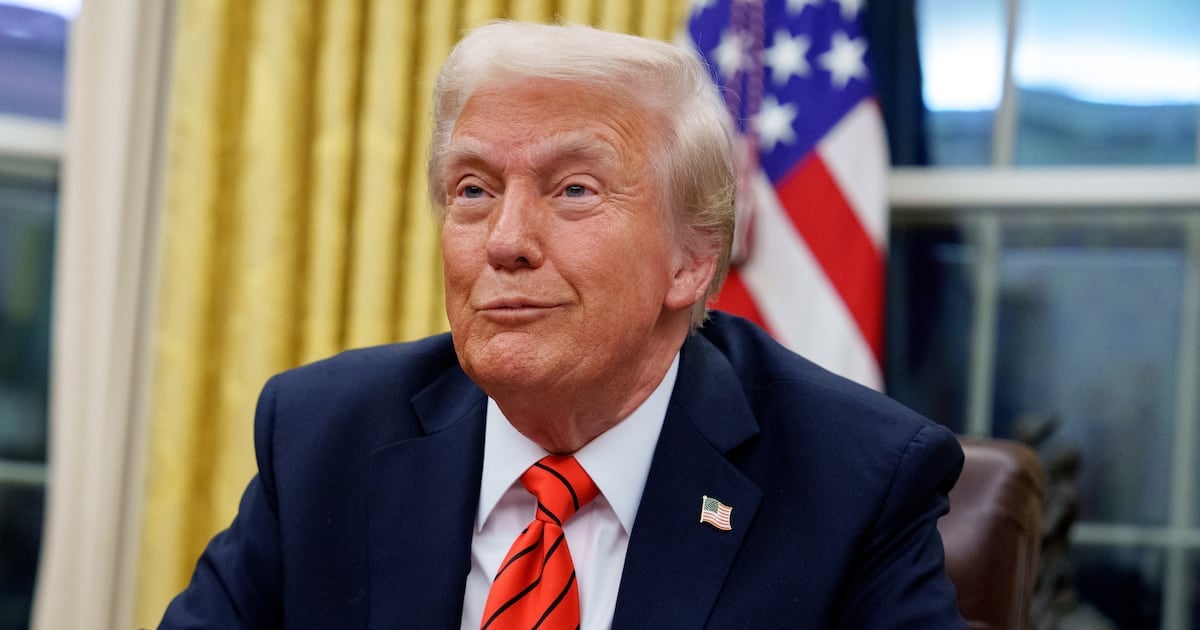Summary
Donald Trump signed an executive order expanding presidential control over independent agencies, including the FTC, FCC, and SEC.
The order enforces the “unitary executive theory,” which argues the president has sole authority over the executive branch. It grants Trump’s budget chief, Russell Vought, oversight of these agencies’ performance and budgets.
The move is expected to face legal challenges, as past presidents have largely respected agency independence.
Trump defended the order, stating, “He who saves his Country does not violate any Law.”



It has before. Women didn’t get the right to vote from a massive war. Martin Luther King wasn’t an army general. You’re being just as dismissive and ignorant as the other guy.
MLK would get nothing done without Malcolm X. Imagine thinking the civil rights movement was a peaceful protest! That’s wild you would try to retcon the history of that fight.
Women’s suffrage groups used the slogan “Deeds not words.” They committed arson and bombings.
I’d argue you’re being naive. Every American movement has to have violence attached to it. That is sadly how everything gets done in this shithole.
Lol ok, since you want to be pedantic, let’s really get into some details, because you’re just wrong about MLK to start.
Civil Rights Act of 1964
How did it happen? The Civil Rights Movement itself was largely nonviolent, with most of the violence happening towards protestors. Figures like Martin Luther King Jr. emphasized civil disobedience, boycotts, and peaceful protests.
Women suffrage
Though some suffragettes engaged in civil disobedience, the broader movement relied on lobbying, protests, and legal appeals. That was the bulk. What you’re calling out is one offs and trying to act like that was the norm or bulk of the movement. It was not.
Marriage Equality
Obergefell v. Hodges Supreme Court decision legalized same-sex marriage nationwide. No violence needed.
Disability Rights Movement, also known as the ADA
Advocates lobbied for equal rights through demonstrations and legal battles. This resulted in the ADA being passed in 1990
The Fair Labor Standards Act (1938) – Ending Child Labor & Establishing Minimum Wage
Labor unions and activists pushed for reforms through strikes, negotiations, and legal battles.
The Voting Rights Act (1965) – Protecting Minority Voter Rights
The Selma to Montgomery March and other efforts, led by MLK and civil rights groups, put pressure on the government.
Title IX (1972) – Gender Equality in Education & Sports
Women’s rights activists lobbied for equal educational opportunities. This endned gender discrimination in schools receiving federal funding, revolutionizing women’s sports and education.
Don’t Ask, Don’t Tell Repeal (2011) – Allowing Open LGBTQ+ Military Service
LGBTQ+ advocates, veterans, and lawmakers worked for repeal.
So while you’d argue I’m being naive, I’d argue that you’re not informed enough about the topic to make such statements. Especially such absolute statements like “every American movement has used violence” when that is objectively wrong. I don’t remember the great Marriage Equality rioters killing people, or the War of Don’t Ask, Don’t Tell.
Please stop spreading misinformation.
Edit: lol some people are mad that facts don’t line up with their world view.
You think only killing each other is violence
No I’m not?
The comment was made that violence is needed for any change. Violence happens because of issues, but violence did not help move these forward. Unless you can explain how.
The labor movement was a very bloody fight. Blair mountain, and Triangle Shirtwaist was a lot of death.
There were bombings during the Civil rights era, it wasn’t just sit-ins. Lots of people died due to lunching.
Also anything during the 30’s was filled with bodies due to the Geat Depression and fights like the Battle of Central Park.
Only when the President had enough bad blood did they decide to push changes against their own interests. No US political changes came without bloodshed.
Blair Mountain? These are entirely different. The labor rights I mentioned were 17 years after that. Blair mountain was in 1921, fair labor standards was 1938. They are not the same thing. And triangle shirtwaist was 10 more years before that and had nothing to do with workers rights, it was an accident that exposed safety issues, not some attack. This is more dishonesty. The incident I mentioned move forward without violence. Other instances having violence doesn’t change that.
Yes there were bombings, sure. There are always radicals, tell me how it moved the needle. Doesn’t prove anything.
See, the problem with the statement that there always has to be violence is that it’s an absolute statement. One instance to the contrary proves it wrong. This idea also puts forward this idea that violence is the ONLY way to make progress. So if you want change, start hurting people. That’s so wrong, factually.
Then you bring in deaths from the depression? What? This is all over the place, those deaths were not the result of people acting for change, those are victims of the economy. Not every death ever is for a cause.
But maybe I’m wrong, how many people died or got hurt in attacks for marriage equality? Because I remember it all being very legislative in nature. Sure there were hate crimes, but that’s not violence effecting change, it was the thing that needed to change.